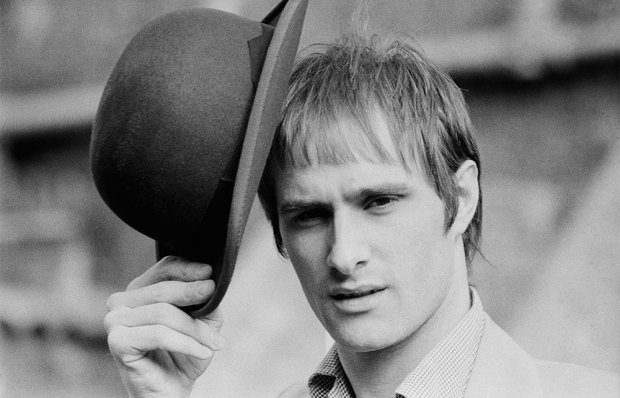A long tradition in the Liddle household on a Saturday morning is to read aloud sections from the Guardian Weekend magazine and fall about laughing. It is of course the sole reason we buy the paper. Two regular features in particular create a quite enormous amount of merriment. The first, Blind Date, is where two of the paper’s readers are brought together to see if they fancy copping off with each other (they almost never do, for good reason).
It’s not a bad idea, to be honest – but, oh, Christ help us… the people. Epicene smirking hipsters; growling diesel dykes; ingenuous gayers with multiple piercings; ugly, embittered, hummus-breathed third-sector workers; rancid, angry, middle-aged harridans of either gender; smug, dim-witted perpetual students. If you are ever tempted to vote for Sir Keir, just read a few of the Guardian’s Blind Date columns and remember that the people within will be deliriously happy if Starmer wins. I don’t want those people to be happy, ever.
The other feature which appeals is of a similar kind. It is called ‘Dining across the divide: can breaking bread help bridge political differences?’ Once again, two people are brought together and the thing here is that each week these individuals identify at the start of each column that they support the Labour party. So there is no divide. None at all. The whole point of the feature is defunct because they couldn’t bear to have someone with a different viewpoint take part.
This false divide stuff is becoming very popular on the liberal left. You can, if you wish, choose to listen to a whole host of podcasts posited on the notion that the two participants are politically averse, when actually they agree about pretty much everything. The most egregious is the pairing of Alastair Campbell with Rory Stewart, two people with identically stupid opinions on Brexit, the culture war, Ukraine, nationalisation, green stuff… you name it, these two political failures are happy to concur every time.
The same is true, to a slightly lesser extent, with the pairing of Ed Balls and George Osborne or David Yelland and Simon Lewis. It is our liberal establishment talking to itself and pretending that debate is happening, when actually, for these people, there is not really a debate to be had. If there had been podcasts in the old USSR they would have been exactly like this: Rory Stewart suggesting that the latest five-year plan was going brilliantly and Alastair Campbell disagreeing and saying no, no, Rory, you have never been more wrong, it’s actually going very brilliantly. Except they wouldn’t be called Alastair and Rory. They’d be called Dmitri and Ivan, or something.
The reason this happens is that our liberal elite simply cannot tolerate genuine debate: everything discussed must be within its own narrow parameters. Views from beyond its conspicuously failed catechisms are contraband and should simply not be heard. With these podcasts and indeed with the Guardian’s ‘divide’ feature, one can argue that it doesn’t matter: let these tarts jabber in agreement at each other, we don’t have to listen to or read the rubbish. But this mindset has purchase beyond the pygmy audiences enjoyed by the Guardian and Campbell and Stewart and it warps discourse.
Take the case of Dr Alka Sehgal Cuthbert, an academic and writer on education who was invited to speak at last weekend’s Rethinking Education conference in London, until the organisers decided they didn’t want to rethink education at all, actually. Some jackass at Rethinking Education contacted Dr Cuthbert and told her that her invitation had been withdrawn. When she pressed as to why, she was told that no fewer than seven fellow speakers had professed that they felt ‘unsafe’ having her on the same bill as themselves. You will clock the word – ‘unsafe’: that is the term the liberal left uses to close down debate and in some cases to insist that debate is harmful. It is of course a travesty of the meaning of the word ‘unsafe’. Perhaps they meant that they felt ‘unsafe’ because Dr Cuthbert is not white. There were precious few other people of colour speaking – just the usual tranche of thick-as-mince white liberals. But who can tell?
More likely is the fact that these other speakers disagreed with her opinions and felt it reasonable enough to ban from a debate people who had opinions which differed from their own – which, to me, leads to a strange interpretation of the word ‘debate’. But what are these opinions? Is she a crypto-fascist or something? Actually not – Dr Cuthbert is a former member of the Revolutionary Communist party and is now a part of the organisation Don’t Divide Us, which was set up to counter the pernicious and I would argue evil contention that all white people are racist as a consequence of their skin colour, and that schoolchildren – especially horrible white schoolchildren – should be informed of this and made to feel bad for their very existence.
This loathsome creed, drawn from Critical Race Theory and propagated by the Black Lives Matter grifters, has taken root in our schools, and people such as Dr Cuthbert would rather it had not – so there is at least a debate to be had, no? But they do not want a debate at Rethinking Education, even if Dr Cuthbert’s position on the issues of Critical Race Theory and institutional racism in the UK would find accord with a majority of people, I would guess, and reflects the conclusions of Dr Tony Sewell’s excellent report ‘Commission on Race and Ethnic Disparities’.
The truth is, today’s liberals cannot bear to hear views which genuinely challenge their asinine and easily disprovable assumptions and so they debate only with people who agree with them. There can never be, for them, a debate ‘across the divide’.
Got something to add? Join the discussion and comment below.
Get 10 issues for just $10
Subscribe to The Spectator Australia today for the next 10 magazine issues, plus full online access, for just $10.
You might disagree with half of it, but you’ll enjoy reading all of it. Try your first month for free, then just $2 a week for the remainder of your first year.















Comments
Don't miss out
Join the conversation with other Spectator Australia readers. Subscribe to leave a comment.
SUBSCRIBEAlready a subscriber? Log in